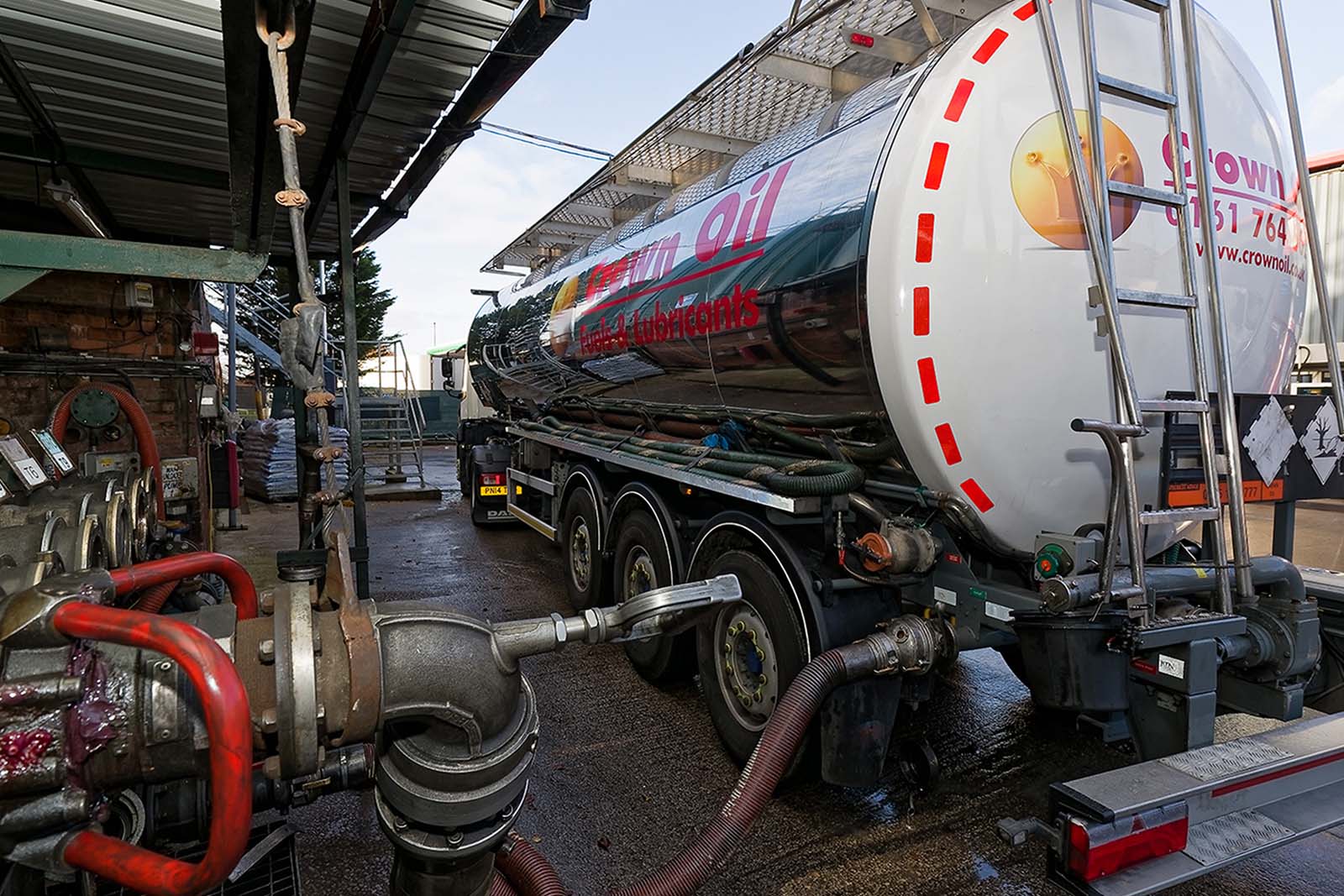Running a business means keeping your operations moving, and your fuel supply plays a crucial role in that. Our fuel management service helps you stay in control by monitoring your usage and arranging deliveries when needed. This avoids costly emergency call-outs and downtime, ensuring your machinery and vehicles are always ready to go.
When fuel is stored for long periods, water and microbial growth can contaminate it, reducing quality and putting your equipment at risk. The longer the fuel sits, the greater the potential for degradation and operational issues.
What is the Renewable Transport Fuel Obligation (RFTO)?
The UK’s Renewable Transport Fuel Obligation (RFTO) is one of the government’s key policies to help reduce greenhouse gas emissions from fuel used in road and off-road vehicles and machinery. It requires all fuel suppliers to increase the level of renewable content in the total fuel mix. Currently, this is at 8.5%, but this is set to increase to 12.4% by 2032.

The impact of FAME on fuel quality
The responsibility to meet these targets falls with the fuel suppliers registered with the RTFO administrator at the Department of Transport. A common way to achieve this is through the introduction of Fatty Acid Methyl Ester (FAME) to red diesel and road diesel, a renewable biodiesel made from sustainable materials.
While FAME helps reduce harmful emissions, it’s hygroscopic, which means that it attracts and absorbs moisture. Although it meets British Standards, the increase in FAME content can lead to an increase in inherent problems, including:
- Sludge and microbial contamination build up, which clogs filters
- Increased water uptake – increased potential for bacteria and algae growth
- Reduced fuel stability & shelf life
- Decreased cold-weather performance and increased gelling issues – blocked lines and fuel starvation
How to avoid FAME diesel problems
Annual fuel checks alone are often not enough to keep your fuel healthy, especially during winter. Bacterial contamination spreads faster in cold, damp conditions, increasing the risk of water ingress and microbial growth in storage tanks.
It’s important to invest in regular fuel management throughout the year. Poorly designed storage and inadequate thermal protection can cause wax crystals (paraffins) and condensation to form, leading to blocked pipes and filters. If water freezes within a diesel system, it can result in combustion problems such as jerky engine performance or complete failure to start.
Best practices include:
- Regular fuel monitoring: Routine testing helps identify contamination early, reducing the risk of costly damage.
- Proper tank storage: Keep fuel in a clean, dry, UV-resistant tank or container. Our sister company, Crown Oil, supplies a range of compliant storage solutions with 10-year warranties.
- Use the correct seasonal fuel: Winter-grade diesel can be used year-round, but summer-grade fuel should not be left in tanks over winter due to its lower cold flow properties.
- Keep tanks topped up: A full tank minimises airspace, reducing the risk of condensation and water ingress.
- Tank cleaning: Over time, sludge can build up unnoticed. Regular cleaning helps prevent contamination and corrosion.
Protect your business and equipment
Storing your fuel in a suitable tank or container will help protect it from contamination. Our sister company, Crown Oil, supplies a wide range of storage tanks and barrels, with a 10-year warranty, complete protection from UV rays and corrosion prevention technology, all of which are fully compliant with safety and environmental standards. Call our fuel team to find out more.
During the cold months, fuel tanks and engines left exposed at night will cool rapidly, which can cause fuel to degrade in quality. We recommend that you keep your tank in a shed or sheltered area to help avoid heat loss and paraffin issues.
Make sure you’re using winter-grade fuel
Red diesel (gas oil) differs in grade for seasonal use. Winter fuel can be used all year round as it’s more resistant to cold (-12°C CFPP min), so it can be used throughout all seasons. But fuel certified for use during the summer period is only fit for use during these months (-4°C CFPP min) as it has a limited resistance to cold.
Leaving summer-grade fuel in the tank during winter can cause big problems for your engines and machinery. At Crown Oil Environmental, we automatically adjust the grade of our product to ensure our customers receive the highest quality of gas oil throughout the year.
Keep your fuel tanks topped up
It’s important to limit the storage time of diesel fuel and keep tanks topped up to reduce airflow and empty space, which can attract condensation and moisture.
Regular analysis of your fuels and oils
If contamination is not detected and treated early on, your diesel-powered engines can experience performance problems such as difficulty starting and even complete failure to start at all. Regular analysis ensures that any diesel fuel contamination is found before it becomes severely degraded in quality so it can be treated at a considerably reduced cost compared to having to buy a replacement batch of fuel. Damage to tanks and equipment through fuel stability issues will contribute to a list of expensive clean-up jobs!
Regular fuel tank cleaning
While your fuel may look healthy, it’s possible that your tank has a build-up of sludge on the bottom that you may not have been able to spot. Over time, this can build up and contaminate your fuel. Alternatively, your tank could start to become eroded, which can lead to leakage into the environment if ignored. There is a wide range of tank cleaning services available, from manual entry tank cleaning to advanced automatic tank cleaning, to help keep your fuel in tip-top condition.
There’s no better time than a new year to ensure your fuel remains at optimum quality, so act now and help your business avoid expensive fuel issues! Call 0330 123 3399 to speak to our specialist team.





